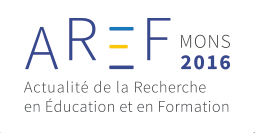Recent educational reforms and legislative changes in both Catalonia and Spain have been strongly inspired by the New Public Management (NPM) doctrine. Accordingly, policy ideas such as school autonomy and accountability have strongly framed the education policy debate as well as some of the most visible educational transformations. This paper analyses how NPM and, with it, new forms of education evaluation and accountability have been adopted and re-contextualized within the Spanish context, with a focus on the Catalan region. The Catalan case is especially relevant due to the fact that it has pioneered the introduction of NPM reforms within the Spanish educational system, and has influenced similar reforms later on introduced in other regions and, to some extent, at the Spanish scale.
The objective of the paper is two-fold. First, the paper explores the particular accountability policies that are being introduced in the Spanish context, namely test-based accountability and the evaluation of teachers' productivity and performance. Secondly, the paper reflects on how and why these new evaluation policies are being adopted. Among other things, the paper shows that the majoritarian social-democrat and conservative parties in both Spain and Catalonia seem to converge in the desirability of adopting accountability policies. However, despite both parties embrace the ‘accountability norm' generally speaking, they regulate and enact accountability systems differently. Specifically, they use accountability measures to achieve slightly different objectives and apply these measures in a way that has different implications for the educational actors that take part in the accountability scheme.
The paper is grounded on a cultural political economy approach (cf Jessop 2010) and focuses on how educational reforms, such as those represented by NPM and accountability ideas, evolve though the mechanisms of variation, selection and retention. The data analysed in the paper includes, on the one hand, interviews with key education stakeholders and, on the other, document analysis of policy briefings, press releases and legal documents. The process-tracing method has guided the systematization of these data, and has enabled to link key events in the policy process with the resulting effects these events have had in the Spanish educational system at multiple scales.
Jessop, B. (2010). Cultural political economy and critical policy
studies, Critical Policy Studies, 3:3-4, 336-356
Keddie, A. (2015). School autonomy, accountability and collaboration: a
critical review. Journal of educational administration and history,
Vol. 47, No. 1, pp.1-17
Verger, A. and M. Curran (2014). New public management as a global
education policy: its adoption and re-contextualization in a Southern
European setting. Critical Studies in Education, 55(3), 253-271
- Présentation

 PDF version
PDF version

